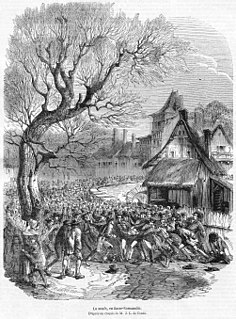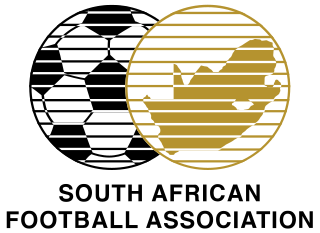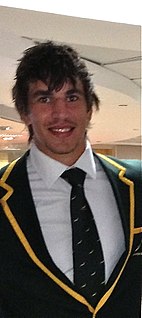Related Research Articles

The history of rugby union follows from various football games long before the 19th century, but it was not until the middle of that century that the rules were formulated and codified. The code of football later known as rugby union can be traced to three events: the first set of written rules in 1845, the Blackheath Club's decision to leave the Football Association in 1863 and the formation of the Rugby Football Union in 1871. The code was originally known simply as "rugby football". It was not until a schism in 1895, over the payment of players, which resulted in the formation of the separate code of rugby league, that the name "rugby union" was used to differentiate the original rugby code. For most of its history, rugby was a strictly amateur football code, and the sport's administrators frequently imposed bans and restrictions on players who they viewed as professional. It was not until 1995 that rugby union was declared an "open" game, and thus professionalism was sanctioned by the code's governing body, World Rugby—then known as the International Rugby Football Board (IRFB).

The South African Rugby Union (SARU) is the governing body for rugby union in South Africa and is affiliated to World Rugby. It was established in 1992 as the South African Rugby Football Union, from the merger of the South African Rugby Board and the non-racial South African Rugby Union (SACOS), and took up its current name in 2005.

Dennis Vincent Brutus was a South African activist, educator, journalist and poet best known for his campaign to have South Africa banned from the Olympic Games due to its controversial racial policy of apartheid.

The South African Football Association is the national administrative governing body that controls the sport of football in the Republic of South Africa (RSA) and is a member of the Confederation of African Football (CAF). SAFA was established in 1991. The South African Football Association is the second Football Association in South Africa to be named the South African Football Association and it is also the second football association in South Africa to affiliate to FIFA. The present day South African Football Association, unlike its predecessor allows for a mixed-race national team.

Apartheid was a system of institutionalised racial segregation that existed in South Africa and South West Africa from 1948 until the early 1990s. Apartheid was characterized by an authoritarian political culture based on baasskap, which ensured that South Africa was dominated politically, socially, and economically by the nation's minority white population. According to this system of social stratification, white citizens had the highest status, followed by Asians and Coloureds, then black Africans. The economic legacy and social effects of apartheid continue to the present day.
The South African Rugby Board was the rugby union governing body of white South Africans between 1889 and 1992. The governing of white and coloured rugby union was handled separately during South Africa under Apartheid.
Saru may refer to:

Rugby union in South Africa is a very popular team sport, along with cricket and football, and is widely played all over the country. The national team is among the strongest in the world and has been ranked in the top seven of the World Rugby Rankings since its inception in 2003. The country hosted and won the 1995 Rugby World Cup, and won again in 2007 and 2019.
Errol George Tobias is a former South African rugby union footballer, and the first player of colour to play in a test match for the South African national side. He gained six caps between 1981 and 1984 when the country was still following the policy of apartheid. Tobias's selection paved the way for other black players to be added to the national team: first Avril Williams, and later, Avril's nephew, Chester Williams. Of his 21 games for the Springboks, six were tests.

Springbok colours is the name given to green and gold blazers awarded to members of the South Africa national rugby union team. They were historically awarded to teams and individuals representing South Africa in international competition of any sport, following their creation in 1906. With the arrival of South Africa's new post-apartheid government in 1994, the name Springbok was abandoned by the various control boards since they felt that the term had been abused by the previous apartheid governments, and stigmatised by the anti-apartheid movement. An exception was made in the case of the national rugby union team, who have retained the practice of awarding colours.

South African Barbarians is an invitational rugby union club styled along the lines of Barbarian F.C. It was formed in 1960 by Frank Mellish, the former 1951–2 Springbok selector and manager, together with former Natal Rugby Union President, Harry Stacey. The club is directly affiliated to the South African Rugby Union.
Rugby union is the most popular sport in Fiji ; however, rugby league, netball, and association football are also widely played. Various forms of traditional boat racing and wrestling are also popular.

The contest between The Wallabies and The Springboks is one of the major rivalries in rugby union.

Netball is one of the most popular women's participation sports in South Africa. The sport is also played by a large number of men. It exists in a culture where sport plays an important public and social part of life. The history of South Africa's netball involvement mirrors that of other sports played in the country like rugby union. During the apartheid era, there were many netball facilities available for whites to use, and fewer for people from other race groups. Funding issues and gender issues did not help bridge this gap.

The South African Sports Confederation and Olympic Committee (SASCOC) is the National Olympic Committee (NOC) and National Paralympic Committee (NPC) for South Africa, and the responsible body for South Africa at the Commonwealth Games. It is also responsible for high-performance sport in the country and coordinates the relationship with various international sports federations.
The Proteas was the representative side of the South African Rugby Football Federation, one of three racially segregated rugby union governing bodies in apartheid South Africa.
The South African African Rugby Board was the body that governed black African South African rugby union players during the apartheid era, and one of three segregated rugby unions operating during that time. The representative team of the African Rugby Board was known as the Leopards.
The South African Rugby Union was a non-racial governing body for rugby union in South Africa that aligned itself with the anti-apartheid movement. Previously known as the South African Coloured Rugby Football Board, SARU was a founder member of the South African Council on Sport and so strongly opposed the inter-racial structures of the South African Rugby Board (SARB). After the end of apartheid SARU combined with SARB in 1992 to form the South African Rugby Football Union, now known as the South African Rugby Union.
South Africa did not compete at Olympic Games from 1964 to 1988, as a part of the sporting boycott of South Africa during the apartheid era. The South African National Olympic Committee (NOC) was expelled from the International Olympic Committee (IOC) in 1970. In 1991, as part of the transition to multiracial equality, a new NOC was formed and admitted to the IOC, and the country competed at the 1992 Summer Olympics held in Barcelona.
Rugby union and apartheid had a complex and supportive relationship. From 1948 to 1994, international rugby relations with the country, and also the non-integrated nature of rugby within South Africa drew frequent controversy. South Africa remained a member of the International Rugby Board (IRB) throughout the apartheid era.
References
- 1 2 3 4 Black, David Ross; Nauright, John (1998). Rugby and the South African Nation. Manchester, UK: Manchester University Press.
- ↑ "The History of South African Rugby". RugbyFootballHistory.com. Retrieved 2011-12-20.
- ↑ Magdalinski, Tara; Chandler, Timothy John (2002). With God on Their Side: Sport in the Service of Religion. London: Routledge. ISBN 9780203995341 . Retrieved 2011-12-29.